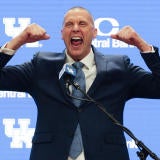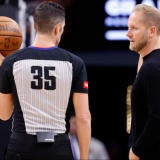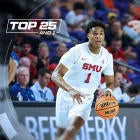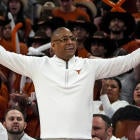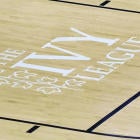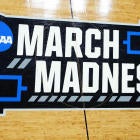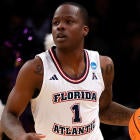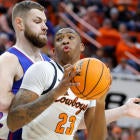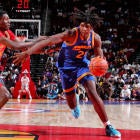Once again, we're running our annual NBA Draft Trends series. Every Wednesday leading up to the NBA Draft will feature a piece on both the college and professional angle of the draft to highlight patterns, and dispel some myths, about what the draft can and cannot. Today's piece focuses on the lottery, which until Tuesday night, had never gone as planned.
The most amazing thing about Tuesday night in sports? Here, I'll show you.
1. Philadelphia.
2. Los Angeles.
3. Boston.
4. Phoenix.
5. Minnesota.
6. New Orleans.
7. New York.
8. Sacramento.
9. Denver.
10. Milwaukee.
11. Orlando.
12. Utah.
13. Washington.
14. Chicago.
Keen eyes can already deduce that's the order of this year's NBA draft lottery. But did you catch what happened as the envelopes were unveiled? Amazingly, for the first time, the odds won. The NBA has held a lottery every year since 1985. Never before, not until Tuesday night, had the pre-lottery percentages matched up with the actual drawing. Every team landed according to their statistical likelihood of placement. It's pretty amazing -- because it took this long.
Consider: In the past 32 lottery drawings, only six times (Philly this year, Minnesota in 2015, Orlando in 2004, Cleveland in 2003, New Jersey in 1990 and the Clippers in '88) has the team with the best chances to land the No. 1 pick actually landed/been awarded the No. 1 pick. Of those six, this year just happened to be one of them, with picks 2-14 also falling perfectly into place.
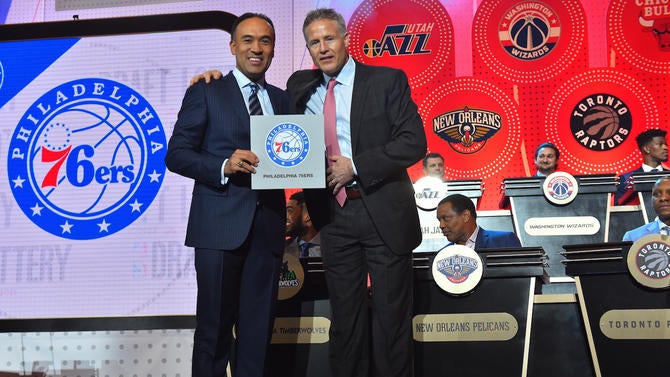
What are the chances that the lottery falls perfectly? I reached out to Mike Lopez, a sports fan and a statistics professor at Skidmore College. Here's how he explains what happened: "So there's about a 1 in 55 chance that the lottery fell as in last night, which is found by multiplying three numbers together: the 76ers probability of picking first (25 percent), the Lakers chance at picking second given the 76ers landed the first pick (about 26 percent), and the Celtics chance of picking third given the 76ers were first and the Lakers were second (about 28 percent).
"Once the top three picks are filled out, NBA rules stipulate that picks 4 onward are given in the order in which teams finished. Thus, the 4th team was Phoenix, and so on. So it's not as if all of picks 1-14 were determined by ping-pong balls -- only picks 1-3 were, with 4-14 predetermined based on standings. When multiplied together, 0.25*0.26*0.28 gives us the 1.88% probability of what happened last night (roughly 1 in 55)."
That's the key thing to remember. Anyone can get the first, second and third pick. But once the top three teams are chosen at random, the remaining picks are automatically slotted based on worst-to-best record.
"While it does seem a bit strange to have form hold, and 1 in 55 appears fairly low, it is important to note that of all possible arrangements, the one that happened last night is the most probable," Lopez said. "As a result, any other exact ordering of teams would have a lower probability of the one that we observed."
Which makes it somewhat surprising that we haven't had the lottery fall perfectly into place until 2016.
But that's what you'll get with a game of luck and chance. Here's how teams have done the modern era, since the NBA went to its weighted, percentage system in 1994. The teams with negative numbers have been unlucky, with their lottery draw coming up later, on the whole, than their expected placement. On the opposite end, teams like the Clippers, Pelicans and 76ers have fared well in the lottery.
In terms of the No. 1 pick, the average pre-lottery spot of the team that winds up with the top pick: No. 4 in line. Philadelphia essentially tanked again this season, and its reward will be either Ben Simmons on Brandon Ingram, in all likelihood. But Philly still isn't at the top of the all-time lottery luck standings when it comes to drafting first.
And finally, here's a list of every NBA team and how many lottery picks they've had since the system went weighted in 1994. San Antonio's continued success despite only having one pick (Tim Duncan) remains unbelievable.








